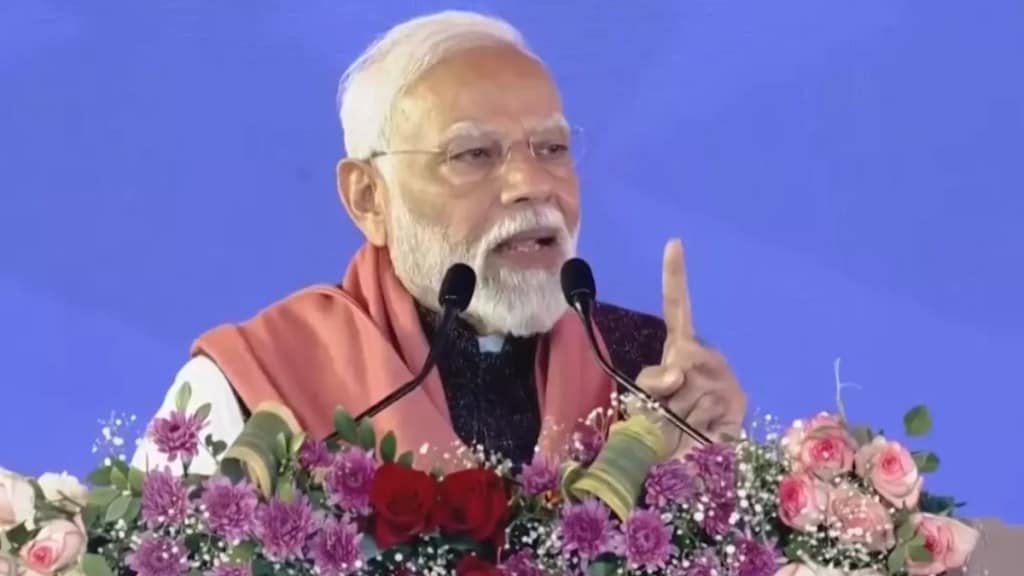As Prime Minister Narendra Modi prepares for an important diplomatic tour, discussions on maritime security with Singapore and enhanced space cooperation with Brunei are set to take center stage. The trip, scheduled for September 4-5, underscores India’s commitment to bolstering relationships with key ASEAN nations in alignment with its Act East Policy and broader Indo-Pacific strategy.
Maritime Security in Singapore: Safeguarding Vital Sea Lanes
India and Singapore share a common strategic interest in maintaining security and stability in the South China Sea, a region critical for global trade and economic stability. On Monday (Sept 2, 2024) Secretary East, Ministry of External Affairs, Jaideep Mazumdar, highlighted this convergence during a special briefing ahead of the Prime Minister’s visit. He stressed that maritime security will be a key topic during discussions with Singaporean leadership, given the importance of keeping sea lines of communication safe, secure, and free from threats.
Mazumdar’s remarks reflect the broader concerns both nations share regarding the increasingly complex security dynamics in the South China Sea, where tensions have been escalating due to overlapping territorial claims. For Singapore, a major maritime hub, and India, an emerging maritime power, ensuring that these sea lanes remain open and secure is of paramount importance.
Mazumdar expressed confidence that the maritime security issue would be discussed, though he noted the extent of these discussions would depend on the evolving regional situation. Nevertheless, the mutual understanding between India and Singapore on the significance of maritime security is likely to foster deeper cooperation, including possible joint naval exercises, enhanced intelligence sharing, and stronger collaboration in combating piracy and other maritime threats.
Strengthening Regional Stability: Addressing Myanmar’s Crisis
Beyond maritime security, regional stability is another crucial agenda item, particularly concerning the ongoing crisis in Myanmar. As common members of ASEAN, both Singapore and Brunei have a vested interest in resolving the conflict in Myanmar, which has far-reaching implications for the entire Southeast Asian region. Mazumdar indicated that the situation in Myanmar would likely be discussed during the Prime Minister’s bilateral meetings in both countries.
India’s approach to Myanmar, a neighbouring country, has been one of cautious engagement, balancing its strategic interests with humanitarian concerns. The discussions in Singapore and Brunei could potentially lead to a more coordinated regional response, emphasizing ASEAN’s centrality in addressing the crisis and promoting dialogue with Myanmar’s military leadership.
Space Cooperation with Brunei: A Growing Partnership
Following the Singapore leg of his visit, Prime Minister Modi will travel to Brunei, marking the first-ever bilateral visit by an Indian Prime Minister to the Sultanate. The visit is particularly significant as it coincides with the 40th anniversary of the establishment of diplomatic ties between India and Brunei. The two nations have developed a warm and friendly relationship, with cooperation spanning multiple sectors, including defence, trade, investment, and, notably, space technology.
India’s space program has greatly benefited from Brunei’s support, particularly through the establishment of a telemetry tracking and command station in Brunei in 2000. This facility plays a crucial role in monitoring India’s eastward satellite launches, exemplifying the strategic importance of space cooperation between the two countries. Mazumdar highlighted that India and Brunei have signed three Memorandums of Understanding (MoUs) in the space sector, further solidifying their partnership.
During the Prime Minister’s visit, the two leaders are expected to explore new avenues for collaboration, particularly in space technology and satellite navigation. This collaboration not only strengthens bilateral ties but also aligns with India’s broader goal of establishing itself as a key player in the global space arena.
Defence Cooperation: A Pillar of Indo-Brunei Relations
Defence cooperation remains another critical aspect of India’s relationship with Brunei. The two nations signed a Memorandum of Understanding on Defence in 2016, which was renewed in 2021. This agreement provides a framework for collaboration, including regular exchanges at high levels, naval and coast guard ship visits, joint training exercises, and participation in each other’s defence exhibitions.
Brunei’s strategic location in Southeast Asia makes it a valuable partner in India’s Act East Policy and its vision for a free, open, and inclusive Indo-Pacific. As India marks a decade of its Act East Policy, the upcoming visit assumes additional significance, reinforcing the importance of Brunei as a key ally in the region.
A Diplomatic Mission with Strategic Implications
Prime Minister Modi’s upcoming visit to Singapore and Brunei is more than a routine diplomatic engagement. It represents a strategic initiative to strengthen maritime security in a volatile region, expand cooperation in space technology, and reinforce defence ties with key ASEAN partners. As India continues to assert its role as a major player in the Indo-Pacific, these discussions will likely pave the way for deeper collaboration and a more secure and prosperous future for the region.


